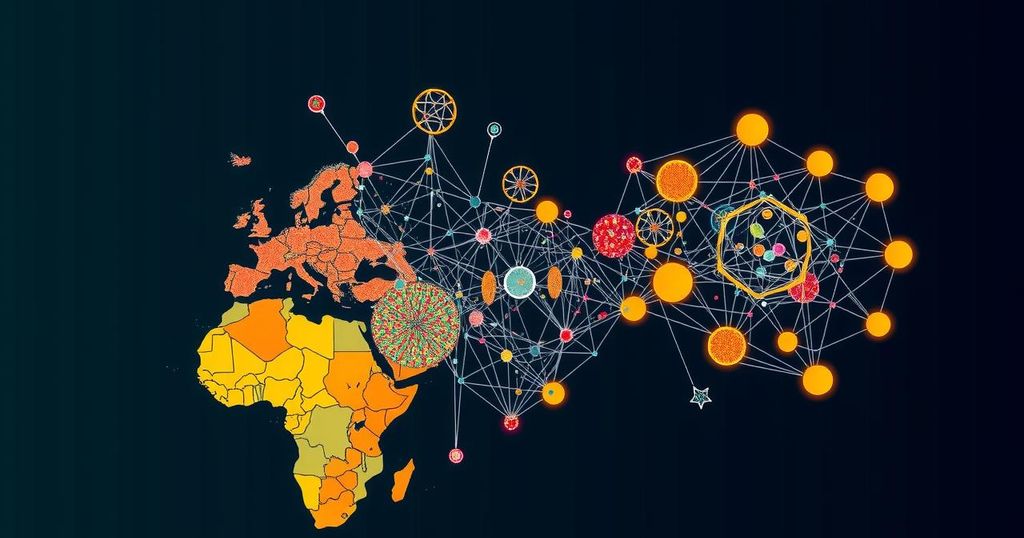Africa has just 20 scientific researchers per million people, significantly lower than Europe’s 246, indicating a critical research capacity deficit. While funding for post-doctoral research is gradually improving, there remains a lack of sustained opportunities and equitable partnerships. Further complicating the issue are barriers such as gender inequality, linguistic diversity, and insufficient skills training for emerging researchers, necessitating a collaborative effort to enhance capacity and promote local leadership in health research across the continent.
There exists a significant disparity in scientific research capacity between Africa and other regions, particularly Europe, where there are 246 scientific researchers per million people contrasted with a mere 20 in Africa. This discrepancy highlights the urgent need to bolster research initiatives on the continent. While funding for post-doctoral research has seen improvements, the lack of sustained opportunities for researchers post-PhD completion remains a formidable challenge. Moreover, the absence of equitable international research partnerships limits the potential for local expertise to inform global health solutions. The recent spread of infectious diseases such as Ebola, Zika, and COVID-19 underscores the critical role of health research in addressing global health crises. These outbreaks have not only revealed the interconnectedness of global health but have also demonstrated the necessity for robust research infrastructure to respond effectively. While investments in training are on the rise, post-doctoral researchers in Africa often struggle to find opportunities for skills development pertinent to their context. Additionally, the inequity faced by women researchers, compounded by cultural barriers and a lack of mentorship, further exacerbates the underrepresentation of diverse voices in scientific research. This aligns with findings that indicate gender biases in African research institutions can stifle innovation and progress. Furthermore, linguistic diversity presents another challenge, as much of Africa’s research is published in English, alienating francophone and lusophone researchers. This language barrier hinders collaboration and the sharing of knowledge across the continent. Given these multifaceted challenges, there is a pressing necessity for equitable research partnerships that harness local understanding and expertise. It is imperative that African researchers lead local investigations, given their unique insights into local health challenges. This will require reforming international research collaboration to ensure it is inclusive and supportive of African-led initiatives, rather than imposing foreign perspectives. Organizations such as the Africa Research Excellence Fund (AREF) are taking proactive steps to address these challenges through initiatives focused on capacity building and mentorship. Such programs not only aim to equip researchers with necessary skills, but also promote gender equity by supporting women in research roles. The establishment of networks for post-doctoral researchers across Africa further enhances collaboration and boosts research output. The path forward necessitates a collective commitment to rectify inequities in research investments and to empower local researchers through adequate support and collaboration. Such efforts are crucial in closing the gap in research capacity and ensuring that Africa’s health challenges are met with appropriate and informed scientific responses.
The article highlights the critical disparity in the distribution of scientific research capacity, particularly between Africa and Europe. With Africa having only 20 researchers per million people compared to 246 in Europe, the implications for health research are significant. The insights provided demonstrate how this research gap affects the continent’s ability to respond to global health crises, particularly in the wake of diseases like Ebola, Zika, and COVID-19. It points to systemic issues in funding, mentorship, gender equity, and linguistic barriers that hinder research development in Africa. Furthermore, it emphasizes the need for equitable partnerships that prioritize local expertise and leadership in research.
To address the severe research capacity deficit in Africa, there is an urgent requirement for equitable partnerships that harness local expertise and enhance the support structures for researchers. This includes addressing gender disparities and linguistic challenges, as well as creating sustainable opportunities for post-doctoral researchers. By committing to these initiatives, the global community can foster a more inclusive research environment that empowers African scientists and effectively addresses the continent’s health challenges.
Original Source: www.weforum.org






